He continued, “Notice, Christ tells us, ‘you are’; he doesn't say, ‘you will be’; he doesn't say, ‘you may be’; he doesn't say, ‘you could be.’”
“Once you become a disciple, a follower of Jesus Christ, you receive an identity; and the identity tells you what you are – the salt of the earth, not the saltshaker; the saltshaker shakes salt out and remains on the table … You influence society by giving it taste; you influence society by preserving it,” the Kenyan Catholic Bishop, who started his Episcopal Ministry in February 2010 emphasized.
 Credit: ACI Africa
Credit: ACI Africa
He went on to challenge the people of God under his pastoral care to reflect on their “saltness”, posing, “How much does our faith as Christians, Christian faithful in the Archdiocese of Kisumu, influence our society where we find ourselves? How much salt do you add to people's lives? How much preservative are you at your place of work? Are you able to prevent corruption at your place of work?”
Archbishop Muhatia called upon Christians to pay keen attention to the identity Jesus gives them as salt of the earth.
(Story continues below)
 Credit: ACI Africa
Credit: ACI Africa
“The world should not be your salt; the world should not be the salt of the church, of the Christian faithful,” he cautioned, and explained, “The world should learn from us how to be good, how to be tasty, how to preserve. We should not be taught by the world.”
He further explained, “The faith holds for us values that are rich, that are superior, that are worth emulating. Let’s preserve these values; let’s admit the taste, the good taste that goes to influence the structures of society, influencing them from underneath, and preserve society from corruption.”
 Credit: ACI Africa
Credit: ACI Africa
“When we play our role as preservatives of society, from corruption, the evil in itself will die, just as salt in contact with the snail, the snail dies,” the Local Ordinary of Kisumu Archdiocese since March 2022 said.
Reflecting on the identity of Christians as “light of the world”, Archbishop Muhatia said, “Christianity, yes, must first influence us individually. But Christianity and the Christian faith cannot be hidden. Our faith cannot be hidden because we emit light.”
 Credit: ACI Africa
Credit: ACI Africa
“Our light is like the light of the moon; light of the moon is received likewise our light. We are the light of the world because we have received the light from Jesus Christ. And we transmit what we have received from Jesus Christ,” he said during the June 1 Ojola Deanery Family Day.
In view of the preparations for the launch of centenary celebrations of Kisumu Archdiocese, he said, “We want to demonstrate that we are true salt of the earth and true light of the world.”
 Credit: ACI Africa
Credit: ACI Africa
“In the Archdiocese of Kisumu, the faith and the spread of the Gospel now rests on our shoulders. Justin died for his faith, self-sacrifice, the ultimate sacrifice,” Archbishop Muhatia further said, adding, “We may not be invited to respond in like manner to die like St. Justin, but the sacrifice for the faith is expected of us in much the same way; and comes the defense of the faith; and comes the self-sacrifice, comes the proclamation of the gospel. We have to give our everything.”
The responsibility of evangelization in the Archdiocese has been made urgent by the significant reduction in the number of Catholic missionaries from the West, he said.
 Credit: ACI Africa
Credit: ACI Africa
“A few years ago, ten years ago, you are aware we had many missionaries in our midst, in our Archdiocese. You are aware that the faith we received came through missionaries from countries like the Netherlands and from Ireland and from England. Most of our first missionaries were from those three countries,” the Catholic Archbishop said, and posed, “How many are remaining today? One from Holland.”
“The support of the Church, the sustainability of the proclamation of the Gospel is my responsibility; it’s your responsibility. It is not a question of being rich or poor, no; it’s a question of being generous and committed; it’s a question of being single handed in the proclamation of the gospel,” he emphasized.
 Credit: ACI Africa
Credit: ACI Africa
The 56-year-old Catholic Church leader continued, “Our mother churches from Europe have supported us for a long time. But we must also appreciate the challenges those mother churches have gone through. And as a result, the assistance we used to receive is not as much as it is now as it was then.”
While the support through missionaries and in other partnerships has significantly reduced, he said that God has given the Archdiocese of Kisumu “another gift; the gift of your presence; the gift of the faith in you” that is “a hundred years old.”
 Credit: ACI Africa
Credit: ACI Africa
“As the Archdiocese of Kisumu, what gift are we giving to God for the grace of our Archdiocese? What response are we giving? How am I going to be salt in the earth of the Archdiocese of Kisum? How am I going to be light to the world of the Archdiocese of Kisumu?” he posed.
He challenged the people of God under his pastoral care to consider “shouldering the burden of carrying the message of the gospel abroad; and abroad can mean your neighbor next to you or your neighbor, far away from you.”
 Credit: ACI Africa
Credit: ACI Africa
“Let us take the responsibility with joy, with commitment, with love; the time for us to support the Church is now,” he emphasized, and added, “The missionaries have done their part – those who came. It is now the time for us to be missionaries to ourselves and to others.”
“Let us walk together, enjoy celebrating our faith, thanking God and preparing ourselves to take the next step in evangelization in the Archdiocese of Kisumu, as we thank God for 100 years of existence of our Archdiocese of Kisumu,” Archbishop Muharia said June 1.
ACI Africa was founded in 2019. We provide free, up-to-the-minute news affecting the Catholic Church in Africa, giving particular emphasis to the words of the Holy Father and happenings of the Holy See, to any person with access to the internet. ACI Africa is proud to offer free access to its news items to Catholic dioceses, parishes, and websites, in order to increase awareness of the activities of the universal Church and to foster a sense of Catholic thought and culture in the life of every Catholic.
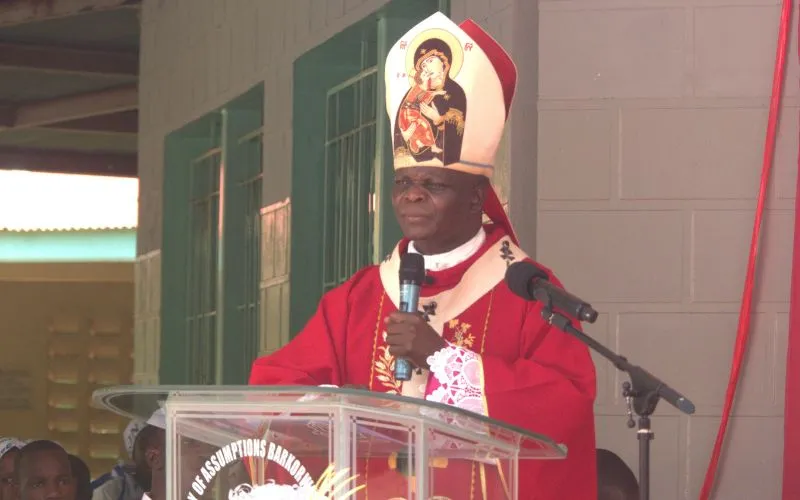 Archbishop Maurice Muhatia Makumba of Kisumu Archdiocese. Credit: ACI Africa
Archbishop Maurice Muhatia Makumba of Kisumu Archdiocese. Credit: ACI Africa


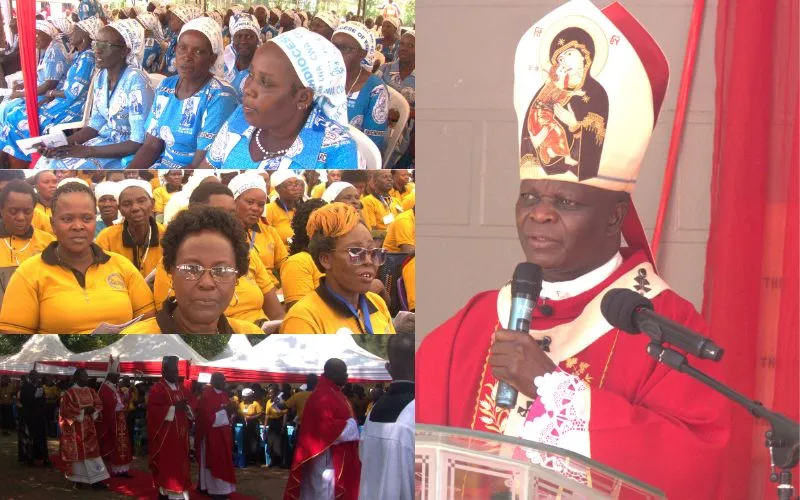
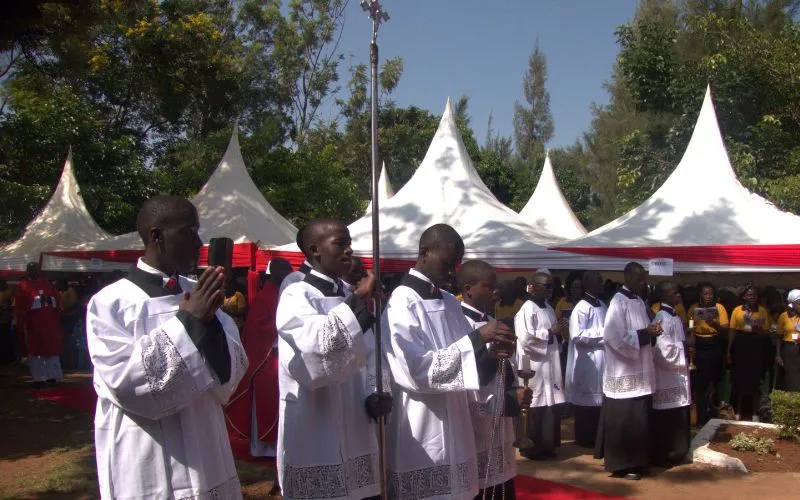 Credit: ACI Africa
Credit: ACI Africa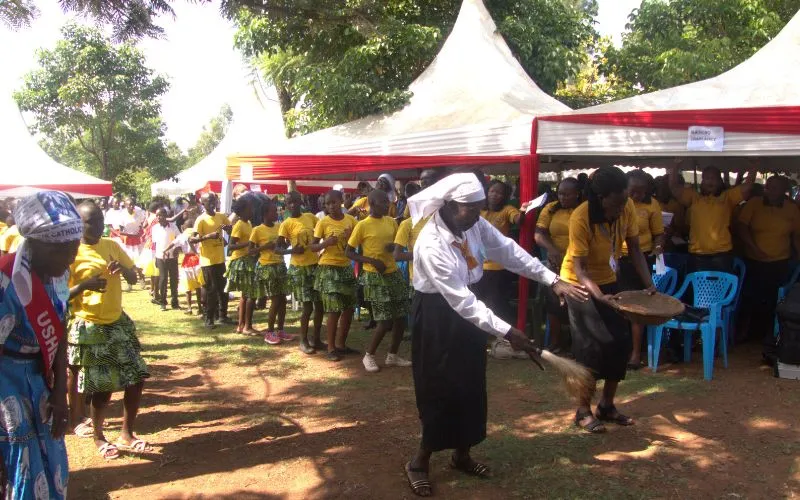 Credit: ACI Africa
Credit: ACI Africa
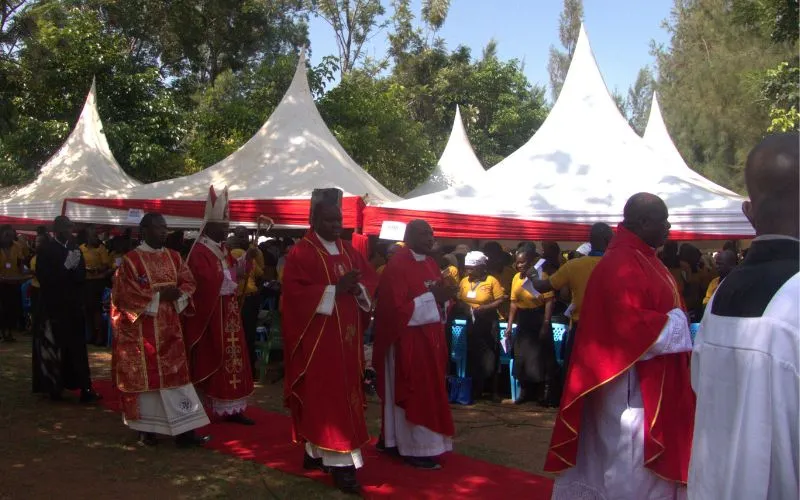 Credit: ACI Africa
Credit: ACI Africa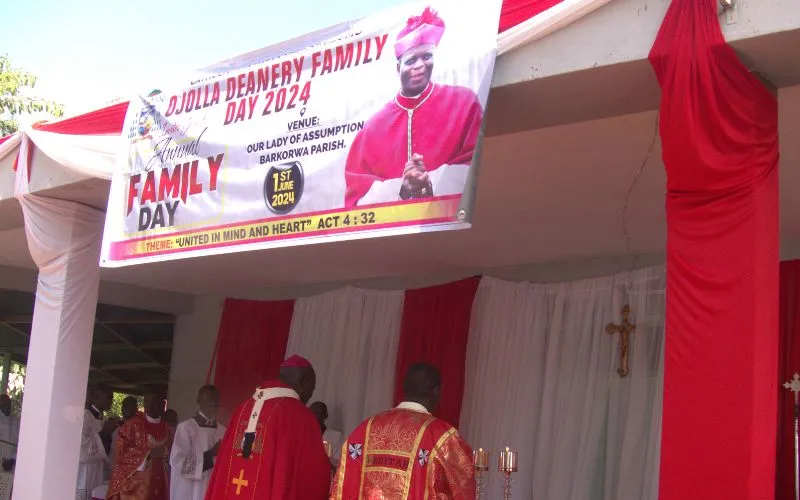 Credit: ACI Africa
Credit: ACI Africa Credit: ACI Africa
Credit: ACI Africa Credit: ACI Africa
Credit: ACI Africa Credit: ACI Africa
Credit: ACI Africa  Credit: ACI Africa
Credit: ACI Africa Credit: ACI Africa
Credit: ACI Africa Credit: ACI Africa
Credit: ACI Africa Credit: ACI Africa
Credit: ACI Africa Credit: ACI Africa
Credit: ACI Africa Credit: ACI Africa
Credit: ACI Africa


